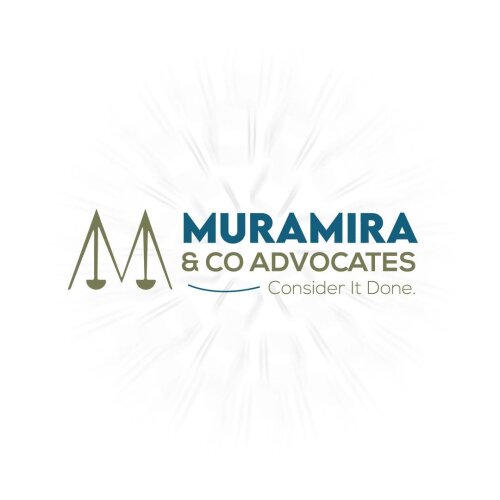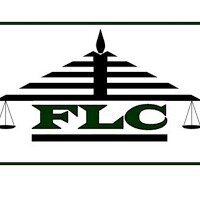Best Landlord & Tenant Lawyers in Kigali
Share your needs with us, get contacted by law firms.
Free. Takes 2 min.
Free Guide to Hiring a Real Estate Lawyer
List of the best lawyers in Kigali, Rwanda
About Landlord & Tenant Law in Kigali, Rwanda
Landlord and tenant law in Kigali, Rwanda, is primarily governed by the Rwandan Civil Code along with specific regulations tailored to housing and property. It establishes a legal framework for the relationship between landlords and tenants, focusing on matters such as lease agreements, rights and obligations, rent, maintenance, and eviction procedures. In Kigali, as urbanization continues, rental housing is a significant segment of the real estate market, making it crucial for landlords and tenants to understand their legal rights and responsibilities to avoid disputes.
Why You May Need a Lawyer
There are several scenarios where you might need legal assistance when dealing with landlord and tenant issues. These include:
- Disputes over lease terms or termination
- Unlawful eviction or lockouts
- Non-payment or disputes regarding rent
- Property damage or failure to maintain premises
- Disputes over security deposits
- Breach of privacy or harassment from a landlord
- Understanding and negotiating lease terms
- Complex eviction proceedings
Having a lawyer can help navigate these situations, ensuring that your rights are protected and helping to resolve disputes efficiently.
Local Laws Overview
Key aspects of landlord and tenant laws in Kigali include:
- Lease Agreements: Must be written and clearly state the terms and conditions agreed upon, including duration, rent amount, and responsibilities for maintenance.
- Rent: Generally agreed upon by both parties, but landlords must provide notice for any increase according to terms in the lease agreement.
- Security Deposits: Often required before tenancy begins, and must be returned at the end of the lease, barring any deductions for damages stipulated in the agreement.
- Tenant Rights: Protection from unlawful eviction, right to a habitable living space, and privacy rights.
- Eviction Processes: Must follow legal procedures including notice and, in many cases, a court order.
Frequently Asked Questions
What should I include in a rental lease agreement?
A rental lease agreement should include the names of both parties, the rental property's address, the duration of the lease, rent amount and payment terms, responsibilities for utilities and maintenance, rules for security deposits, and terms for ending the lease.
How can I legally increase the rent?
Rent increases should be specified in the lease agreement. If not, landlords must provide tenants with reasonable notice, often in writing, according to local laws or the agreed terms.
What are my rights if my landlord wants to evict me?
Tenants have the right to receive proper notice and, in some cases, a court order for an eviction. It's important that tenants understand the reasons allowed for eviction and challenge any unlawful attempts in court.
Can my landlord enter my apartment without my permission?
Landlords must provide reasonable notice and have a valid reason, such as repairs, to enter the rental property. Entry without notice or agreement can be considered a breach of privacy.
What are my responsibilities for maintaining the rental property?
Tenants are typically responsible for keeping the property clean and reporting any necessary repairs. Specific maintenance duties should be outlined in the lease agreement.
What can I do if my landlord does not return my security deposit?
If a landlord fails to return a security deposit, tenants can take legal action or seek mediation to resolve the issue. Documentation of the property's condition when vacating can be crucial.
Can I sublet my apartment to someone else?
Subletting rules should be specified in the lease agreement. Tenants typically need written consent from the landlord before subletting the property.
How much notice must I give before moving out?
The required notice period should be outlined in the lease. If unspecified, local laws or customary practices will often apply, often around one month’s notice for periodic leases.
Is it legal for the landlord to charge late fees on rent?
If specified in the lease agreement, landlords may charge late fees for overdue rent. However, these fees must be reasonable and clearly outlined.
What should I do if I believe I'm being discriminated against by a landlord?
Discrimination is illegal, and tenants should document incidents and seek legal advice or report to relevant authorities if they believe they are being discriminated against based on race, gender, disability, or other protected characteristics.
Additional Resources
There are several resources available for individuals seeking guidance or assistance with landlord and tenant issues in Kigali:
- Ministry of Infrastructure, Rwanda - provides information on policies and regulations concerning housing.
- Local legal aid organizations which often provide free or low-cost legal advice.
- Rwanda Bar Association - for a directory of legal practitioners specializing in real estate law.
- City of Kigali Urban Planning and Management - for guidelines on property and housing.
Next Steps
If you need legal assistance concerning landlord and tenant law in Kigali, consider the following steps:
- Document all interactions and agreements with the landlord/tenant.
- Research and understand your rights and obligations under Rwandan law.
- Consult with a lawyer who specializes in landlord and tenant issues to review your case.
- Contact local legal aid organizations if cost is a barrier to obtaining legal counsel.
- Prepare for any necessary court proceedings with legal representation if disputes cannot be resolved amicably.
Lawzana helps you find the best lawyers and law firms in Kigali through a curated and pre-screened list of qualified legal professionals. Our platform offers rankings and detailed profiles of attorneys and law firms, allowing you to compare based on practice areas, including Landlord & Tenant, experience, and client feedback.
Each profile includes a description of the firm's areas of practice, client reviews, team members and partners, year of establishment, spoken languages, office locations, contact information, social media presence, and any published articles or resources. Most firms on our platform speak English and are experienced in both local and international legal matters.
Get a quote from top-rated law firms in Kigali, Rwanda — quickly, securely, and without unnecessary hassle.
Disclaimer:
The information provided on this page is for general informational purposes only and does not constitute legal advice. While we strive to ensure the accuracy and relevance of the content, legal information may change over time, and interpretations of the law can vary. You should always consult with a qualified legal professional for advice specific to your situation.
We disclaim all liability for actions taken or not taken based on the content of this page. If you believe any information is incorrect or outdated, please contact us, and we will review and update it where appropriate.














